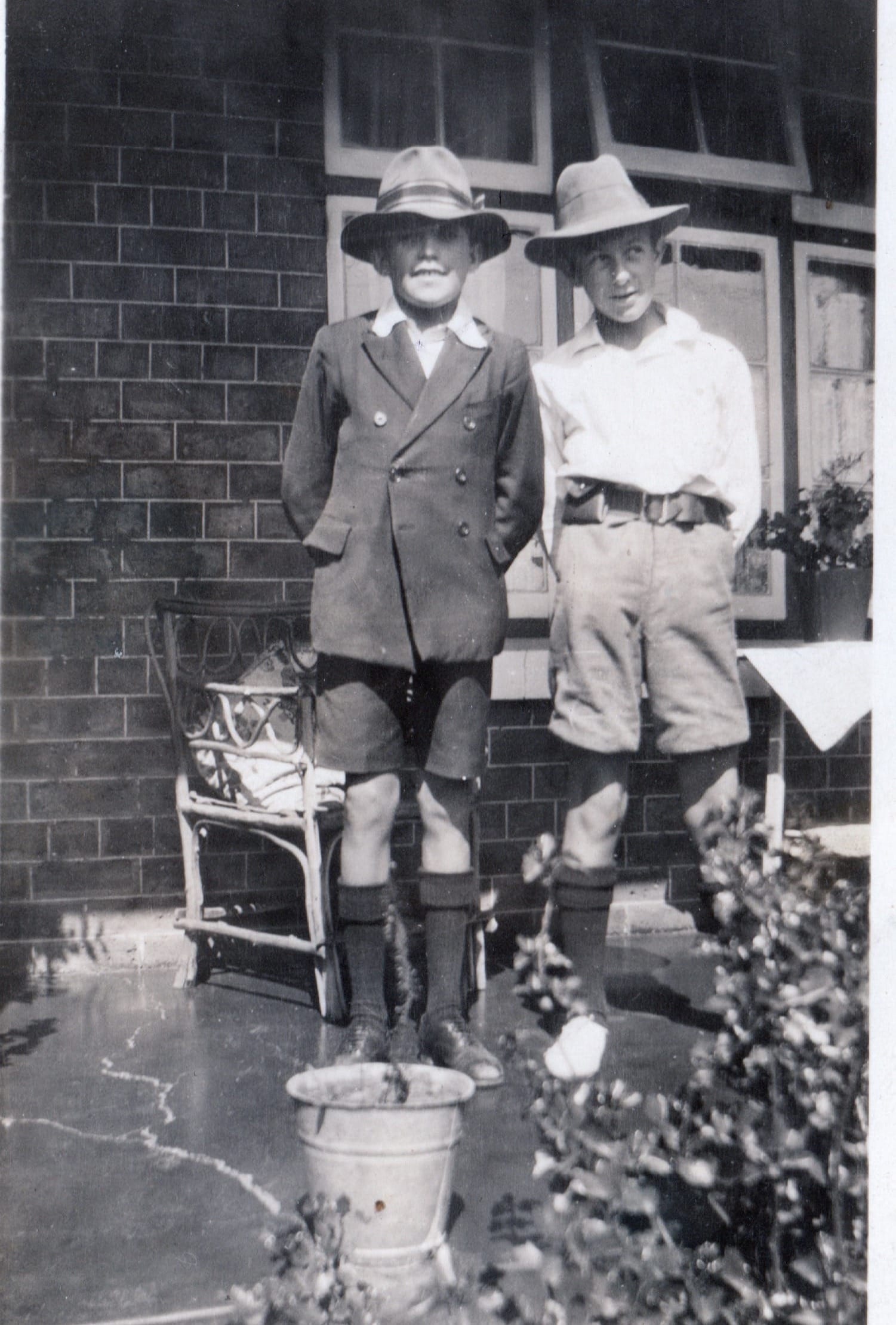Cornered into a Good Investment
In 1931, the Great Depression was at it's height. Bankruptcies and mortgage foreclosures were commonplace and property prices were at historic lows.

To back track just a bit with my new series, my father, Morris Isaac Hirsch, was born in the Southern Suburbs of Johannesburg. His immigrant Lithuanian mother was a berryer (a good housekeeper). She economized wherever she could so her only son could get an education and longed for a house of her own.
I thought you all might enjoy the story of how the family was able to get on the right side of the tracks a year before he entered university.
In 1931, the Great Depression was at it's height. Bankruptcies and mortgage foreclosures were commonplace and property prices were at historic lows. Morris Hirsch's Mother persuaded Father to view a recently completed home of an insolvent owner on the newly developed Yeoville kopje that was to be auctioned without reserve.
Father had to admit that it was just what was needed and could well go cheaply. It would certainly be a step up from the semi-detached Mabel Street rental in Rosettenvilles Southern Suburbs, founded in 1886 by the Jewish pioneer, Leo Rosettenstein. Rosettenville's Shul played a central role in the Hirsch's community's life.
Crossing the line into the Northern Suburbs would be a step up. But Father had had two forays into the stock market, misjudging both the platinum and the diamond markets. His one property investment had also tanked, and he was left saddled with the rates burden for some decades and having to clear it of khaki weed periodically. So, burned, he was happy to plod along with the United Building Society 5% term deposits–the only sure investment. He contended there was no saying when the depression would end or how low property values were still to drop.
Morris and his older sister, Josie, were very excited at the prospect of the house but thought it unlikely to come to fruition. It had two sitting rooms, a formal dining room, three bedrooms and a veranda looking onto a small rose garden. In addition to the full size kitchen, there was a scullery at the back facilitating their Orthodox kosher practices. Beyond it was the detached single car garage and servants quarters.
But a Mabel Street neighbor of theirs, Mrs. Fick, bullied him into attending the sale "just out of interest to get some idea of the trend." To father's consternation, the bidding halted at £1425–a fraction of its value, even for that time. He knew it was a giveaway. The auctioneer was hammering his gavel for the second time. Mother was drained and speechless. Mrs. Fick was livid and agitated. "For God's sake, are you a man or a mouse? Bid now, now, now or you will never forgive yourself."
Father was cornered. She helped him raise his hand. His hesitant £1450 was eagerly seized upon. Their tension was shattered by the gavel striking for the third time and the auctioneer's pointing finger "to the gentleman with the two ladies..." It was hard to believe!
Much of the furniture went with the house. It was relatively new and much posher than the family was accustomed to. They didn't know themselves. Even Father had to admit that it had been a chance of a lifetime.
When they moved, Morris was in his final year at Forest High School in the Southern Suburbs. He had to take an hour long ride each way, changing buses to get to school every weekday. It meant distancing friendships and establishing new relationships. But the family was happy with the change. He was hoping to get into University the following year, only 2 miles away from 40 Harley Street.
(P.S. In 1932, before the year was out, General Smuts, aided by the renegade Nationalist Tielman Roos, forced the Hertzog government to abandon the gold standard, dramatically launching the greatest boom in South African history.)
The historical novel Whitewashed Jacarandas and its sequel Full of Possibilities are both available on Amazon as paperbacks and eBooks.
These books are inspired by Diana's family's experiences in small town Southern Rhodesia after WWII.
Dr. Sunny Rubenstein and his Gentile wife, Mavourneen, along with various town characters lay bare the racial arrogance of the times, paternalistic idealism, Zionist fervor and anti-Semitism, the proper place of a wife, modernization versus hard-won ways of doing things, and treatment of endemic disease versus investment in public health. It's a roller coaster read.
- Excerpt from Dr. Morris Isaac Hirsch's Unpublished Memoirs, Hirsch Archives.
- Photo reference: Hirsch Archives.

